
Elliot Goldenthal is an American composer of contemporary classical music and film and theatrical scores. A student of Aaron Copland and John Corigliano, he is best known for his distinctive style and ability to blend various musical styles and techniques in original and inventive ways. He won the Academy Award for Best Original Score in 2002 for his score to the motion picture Frida, directed by his longtime partner Julie Taymor.
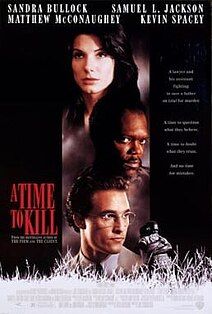
A Time to Kill is a 1996 American courtroom crime drama film based on John Grisham's 1989 novel of the same name. Sandra Bullock, Samuel L. Jackson, Matthew McConaughey, and Kevin Spacey star, with Oliver Platt, Ashley Judd, and Kiefer Sutherland, and Patrick McGoohan appearing in supporting roles. The film was a critical and commercial success, making $152 million at the worldwide box office. It is the second of two films based on Grisham's novels directed by Joel Schumacher, with the other being The Client released two years prior.

Frida is the original soundtrack album, on the Universal label, of the 2002 Academy Award- and Golden Globe Award-winning film Frida starring Salma Hayek, Alfred Molina, Mía Maestro and Ashley Judd. The original score was composed by Elliot Goldenthal. The soundtrack features songs by various artists.
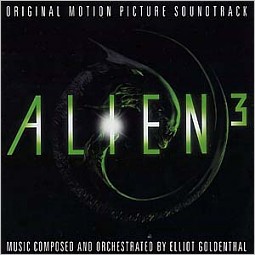
The avant-garde Alien 3: Original Motion Picture Soundtrack was written for the motion picture of the same name. Scored by Elliot Goldenthal, it was his first big mainstream score; he described it as an experiment and spent a whole year creating it.

Heat is the soundtrack album to the 1995 film Heat. The score is compiled mostly with Elliot Goldenthal's orchestrations although there are a variety of other artists featured including U2/Brian Eno project Passengers, Lisa Gerrard, Moby and Terje Rypdal.

Titus is the original soundtrack to the 1999 motion picture Titus. Elliot Goldenthal wrote the score for the film, an adaptation of Shakespeare's first, and bloodiest, tragedy Titus Andronicus; written and directed by Julie Taymor, Goldenthal's long-time friend and partner. The only non-Goldenthal piece is an old Italian song called "Vivere" performed by Italian singer Carlo Buti.
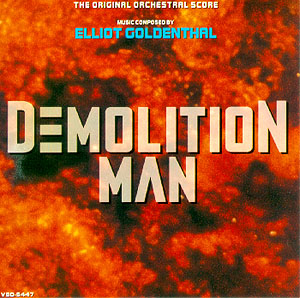
Elliot Goldenthal scored the soundtrack for the movie Demolition Man. It is an example of his off-beat style and use of unconventional techniques in film score, incorporating big brass clashes and complex, dramatic string arrangements.
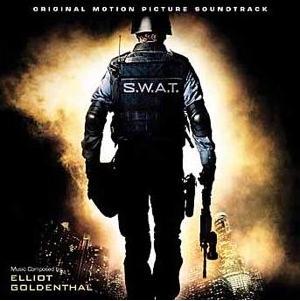
S.W.A.T. is the soundtrack score for the 2003 action film S.W.A.T., based on the 1970s TV series of the same name, composed by Elliot Goldenthal.
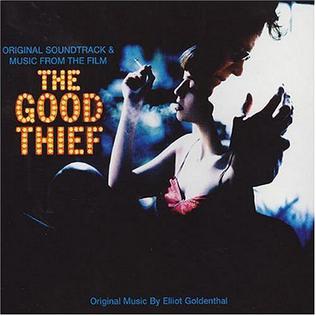
The score to the movie The Good Thief was produced and arranged by Elliot Goldenthal; whilst the score music is generally received favourably one major complaint is that it is too short and that the other tracks supersede Goldenthal's scoring work, it contains eight pieces by him and other artists including Cheb Khaled, Serge Gainsbourg, Johnny Hallyday and Bono; the song Bono covers is the Frank Sinatra song "That's Life", produced, with a string arrangement, by Goldenthal. The original score cues were performed by both The London Metropolitan Orchestra and The Irish Film Orchestra.

Elliot Goldenthal scored the 1994 film Interview with the Vampire, working again with director and frequent collaborator Neil Jordan.
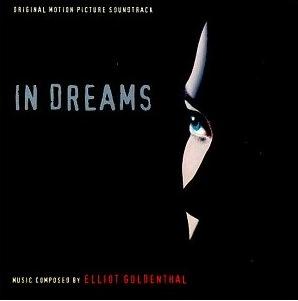
The score to the psychological thriller In Dreams, by Elliot Goldenthal, is an avant-garde work filled with his trademark techniques and dissonance. Composed in 1999, and working again with frequent collaborator Neil Jordan, it also features songs by Roy Orbison and The Andrews Sisters.
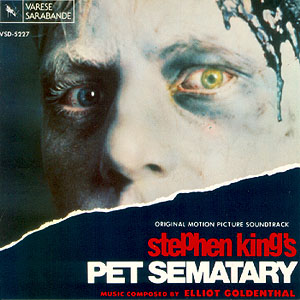
Pet Sematary is the soundtrack album for the film of the same name. Produced by Elliot Goldenthal, it was released in 1989.

Batman Forever: Original Motion Picture Score Album is a 1995 Grammy-nominated film score album for Batman Forever, composed by Elliot Goldenthal. It was released in conjunction with its soundtrack counterpart. Despite Goldenthal having recorded over 2 hours of music, the soundtrack only had 45 minutes before La-La Land Records released an expanded version in 2012. The score features big brass, strings and discordant noises while maintaining an anthemic sound. Regarding the villainous leitmotifs, Goldenthal said Two-Face features paired notes and doubled beats while being inspired by Russian composers such as Sergei Prokofiev and Dmitri Shostakovich, and Riddler has a sound reminiscent of old science fiction B-movies with a theremin. On the U2 single "Hold Me, Thrill Me, Kiss Me, Kill Me", there is a track titled "Theme from Batman Forever" composed by Goldenthal; this can also be found on the expanded release issued in 2012.
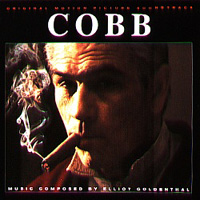
The score to the film Cobb by Elliot Goldenthal was released in 1994.

Elliot Goldenthal's score for the film was nominated for the Academy Award for Best Original Dramatic Score.

Elliot Goldenthal scored the 1997 movie The Butcher Boy; the soundtrack was released in 1998. It marks another collaboration with director Neil Jordan.
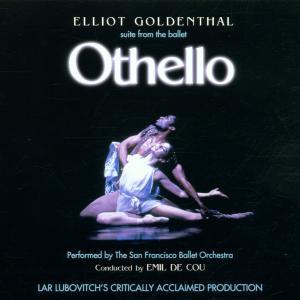
Othello is a ballet in three acts based on the play of the same name by William Shakespeare. Choreography by Lar Lubovitch is set to an orchestral score composed by Elliot Goldenthal and released commercially on the Varèse Sarabande label. Originally produced in 1997, the ballet was commissioned by the American Ballet Theatre and the San Francisco Ballet.
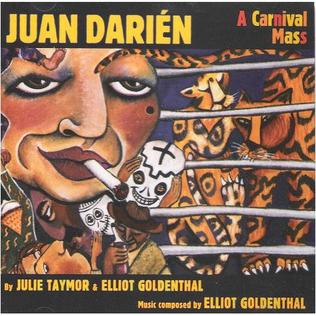
Juan Darién: A Carnival Mass is a musical with music and lyrics by Elliot Goldenthal and a book by Goldenthal and Julie Taymor. The musical premiered Off-Broadway in 1988 in the former St. Clement's Church. It was subsequently reworked and refined before playing on Broadway in 1996 at the Vivian Beaumont Theatre, directed by Taymor. The musical, based on a modern fable of the same name by Horacio Quiroga, is set in the jungle in South America, with a jaunty skeletal Death ever present. Its story concerns an orphaned jaguar cub who is miraculously transformed into a human child by the compassion of a woman who has lost her own baby; the boy must then confront the savagery of human civilization. The production employs masked actors and puppets, and the score includes elements of Latin American folk music and the Requiem Mass. The piece was revived and toured extensively.
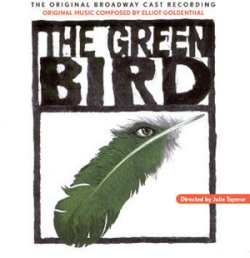
The Green Bird score is composed and orchestrated by Elliot Goldenthal for the 1999 musical of the same name, directed by long-time Goldenthal collaborator Julie Taymor; it is an allegorical fairy tale of a royal family's rite of passage after being separated by a wicked grandmother.
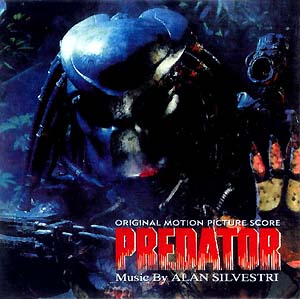
Predator: Original Motion Picture Score is the official soundtrack album of the 1987 action film Predator. It was composed by Alan Silvestri. The score is completely orchestral and was released in 1987.




















